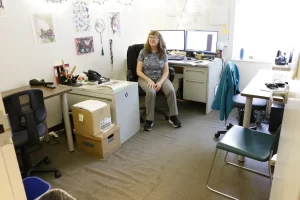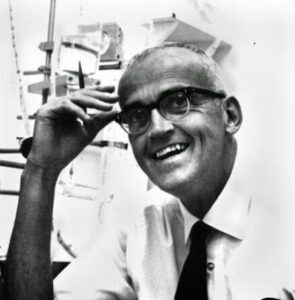By Amanda Zhou Seattle Times staff reporter Climate Lab is a Seattle Times initiative that explores the effects of climate change in the Pacific Northwest and beyond. The project is funded in part by The Bullitt Foundation, Jim and Birte Falconer, Mike and Becky Hughes, Henry M. Jackson Foundation, University of Washington and Walker Family Foundation,
ERMA Sea-Tac Salmon Streams

UW study shows Seattle’s historically redlined communities have worse air quality
By Isabella Breda Seattle Times staff reporter As Seattleites awoke to a hazy concoction of wildfire and Fourth of July firework smoke Wednesday morning, a new study dropped, revealing that some neighborhoods in the city are regularly subject to worse air pollution, reflective of historic racist policies. Those neighborhoods, according to research published Wednesday from the University of Washington,
UW study shows Seattle’s historically redlined communities have worse air quality
Haze from wildfire and Fourth of July firework smoke sets in Wednesday on the Seattle skyline. (Luke Johnson / The Seattle Times) By Isabella Breda Seattle Times staff reporter As Seattleites awoke to a hazy concoction of wildfire and Fourth of July firework smoke Wednesday morning, a new study dropped, revealing that some neighborhoods in the city
Environmentalists and industry weigh in on how to decarbonize aviation
By Dominic Gates Seattle Times aerospace reporter Under intense political pressure, the aviation industry has set itself a daunting challenge to decarbonize flying by 2050 and laid out a road map to get there through technological innovation. For environmentalists, especially in Europe, that prolonged switch to clean energy technology is not good enough. “It takes
California becomes the first state to adopt emission rules for trains
April 27, 2023 SACRAMENTO, Calif. — California approved Thursday a first-in-the-nation, ambitious rule limiting rail pollution to aggressively cut greenhouse gas emissions in the state’s latest move to establish itself as a global leader in the fight against climate change. The rule will ban locomotive engines more than 23 years old by 2030 and increase
Sea-Tac’s legacy of PFAS chemicals: ‘foam showers,’ sick firefighters and contaminated water
Feb. 12, 2023 at 6:00 am Updated Feb. 12, 2023 at 2:04 pm 1 of 15 | Jason Schnase, a battalion chief of training and safety with the Port of Seattle Fire Department, shows where firefighting foam is stored on an aircraft rescue firefighting vehicle at Sea-Tac Airport. A 3% PFAS/97% water… (Ellen M. Banner /
Gates-funded ‘green revolution’ in Africa has failed, critics say
Sep. 8, 2022 at 10:00 am Updated Sep. 8, 2022 at 5:20 pm 1 of 4 | The child of a Kenyan farmer helps with planting trees that restore health to the soil — depleted, according to some, by a chemical-heavy approach pushed by the Bill & Melinda Gates Foundation-funded Alliance for a Green… (Courtesy of Celestine
*Where’s my Clair Patterson?
There is this form of air pollution, which you probably have not heard of, called ultrafine particulates (UFPs). Though they are invisible, they seem to have some particularly nasty effects on human health. UFPs have not been well-studied, they are unregulated, and yet they are prevalent in commercial jet engine emissions. But this is not
LETTER: Port of Seattle responds – ‘Airport programs create habitat, strengthen native species’
LETTER: Port of Seattle responds – ‘Airport programs create habitat, strengthen native species’ Aug 9, 2022 | Des Moines, Environment, Featured Post, Health & Wellness, Health and Wellness, Letter to the Editor, Letter to the Editor, News, Opinion LETTER: Port of Seattle responds – ‘Airport programs create habitat, strengthen native species’ [EDITOR’S NOTE: The following

